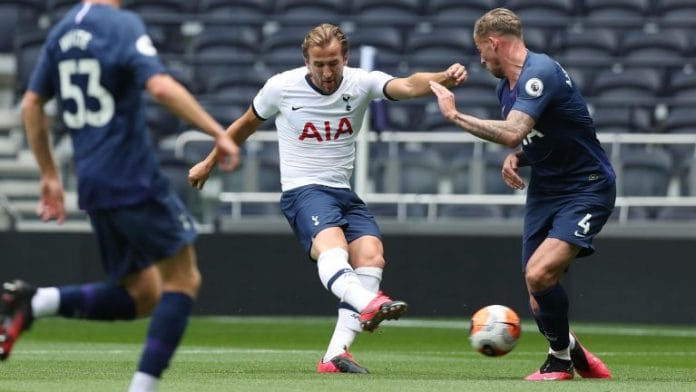London: Europe’s top soccer leagues are in a state of upheaval.
Revenue has plummeted as attendance at matches has been restricted. Broadcasters have demanded rebates for games canceled by the virus. And teams, who in normal times spent much of their revenue buying high priced talent, retained few earnings for a rainy day that few ever saw coming.
Emboldened by the precarious state the game finds itself in due to the global Covid-19 pandemic, the business model of the sport is under attack from inside and out. The world’s richest clubs are making a play to entrench themselves at the top of the sport, private equity investors are trying to buy distressed assets and lucrative media rights deals are coming apart at the seams.
“Crisis creates opportunities,” says Kieran Maguire, a lecturer of football finance at Liverpool University.
The UEFA Champions League, Europe’s richest soccer competition and among the most-watched sports events worldwide, is being targeted for disruption by a group including some of the industry’s biggest teams with financial backing from JPMorgan Chase & Co., according to a person familiar with the situation.
The new tournament would guarantee spots — and with that prize money — for teams like Manchester United and Liverpool rather than requiring them to qualify on an annual basis as the Champions League does.
A formal announcement may come as soon as at the end of this month, Sky News said. Details including the list of participating clubs have yet to be finalized and the plans could still fall apart, according to the report.
Top of the Pile
In England, the billionaire American owners of Manchester United and Liverpool proposed a relief plan for lower tier teams who have seen revenues vanish as fans are restricted from attending matches. The idea, however, came with a catch: a restructuring of the governance of the English Premier League to give its biggest clubs an outsized voice in its future direction and a permanent place at the top of England’s football pyramid.
The proposal was rejected by the EPL, but Maguire believes the game is potentially heading to an American franchise model across European soccer with no relegation and more unequal revenue sharing.
Premier League CEO Richard Masters, who is campaigning to get fans back into stadiums, says English soccer is losing 100 million pounds ($132 million) a month without them.
Also read: Man United cuts wages for first time since 2015 as Covid hits revenue
Media Rights
Across Europe, leagues have seen lucrative broadcasting deals fall apart.
Spanish broadcaster Mediapro failed to make its second scheduled rights payment to France’s Ligue 1 just months into their new agreement. Mediapro has attracted 600,000 subscribers, according to the company, when around 5 million are needed to sustain the new service, according to Francois Godard of Enders Analysis.
The EPL’s Chinese broadcaster PPTV stopped paying for rights, according to a recent court filing in London. The contract was the EPL’s largest, worth more than 500 million pounds over three years, and has now been terminated.
Germany’s Bundesliga hasn’t been unscathed. It warned about a 20% reduction in its overseas rights revenues after BeIN decided not to renew a contract in the Middle East.
In Italy, private equity firms have vied to provide the financially stricken Serie A with funding. CVC Capital Partners and Advent International are in exclusive talks with Serie A after offering 1.6 billion euros ($1.9 billion) in exchange for a 10% stake in part of a new media company that will manage the league’s future media rights.
Player Trades
With media payments in doubt across the sport, teams have been forced to tighten their belts when it comes to the transfer market.
Clubs in Spain’s La Liga and the Bundesliga spent nearly 50% less than they averaged over the past five years, according to Carteret Analytics. Spending on players in the Premier League amounted to 1.218 billion pounds, which is 7% down on the previous year.
When fans finally return to grounds, whenever that is, they could end up watching a game that only superficially resembles what used to be on show.
“They may have believed they were watching a game based primarily on sporting integrity, but fans might return to a game that is increasingly focused on the bottom line,” says Maguire. – Bloomberg
Also read: English soccer clubs face $1.3 billion hit from coronavirus shutdown






